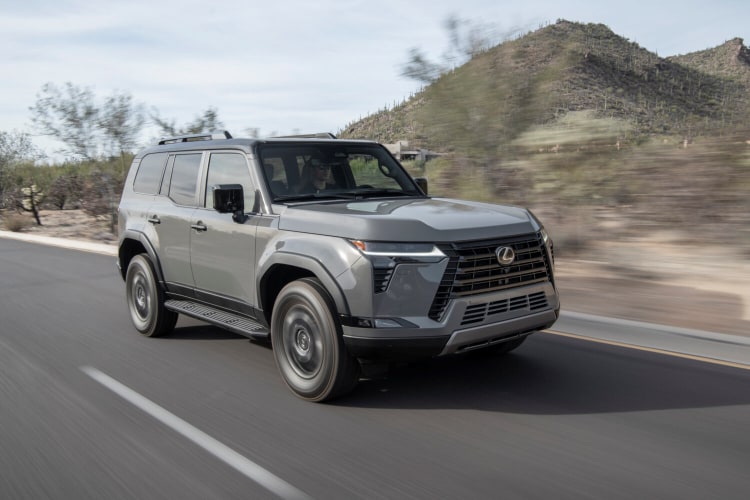
There are seemingly endless makes and models of SUVs, each offering unique strengths, features, and driving experiences. At times, this can turn shopping for an SUV into a daunting task. However, taking the time to consider your needs and priorities in a vehicle will help you narrow down your choices. To avoid getting lost in the sea of options, ask yourself these simple questions, and you’ll be on your way to finding the perfect SUV.
How Will I Use My SUV?
Not only is this one of the most important factors to consider, but it’s also a great place to start. Start with the big picture and think, “What do I need my SUV to do?” Do you need a reliable and fuel-efficient commuter, something spacious and technology-rich for the family, or a capable hauler for work and travel? By thinking about how you’ll primarily use your SUV, you can quickly eliminate options that don’t support your lifestyle and focus on those that do.
Clearly defining your SUV’s primary purpose will help you identify and weigh other, more specific factors more effectively. It’s a smart first step that brings clarity to the rest of your decision-making process.
Which Size SUV is Best?
SUVs come in various sizes – from nimble subcompacts to large, powerful full-size models. This variation means certain SUVs are better suited to handle different lifestyles and driving habits. Let’s take a closer look to identify the right SUV size for you.
If you regularly commute on narrow highways into a big city, you might want to consider a compact SUV like the Mazda CX-5. On the other hand, if you often need to transport large groups, trailers, or other gear, a full-size SUV like the Jeep Wagoneer is a better option. If you’re looking for balance, mid-size SUVs such as the Toyota Grand Highlander provide a solid combination of space and utility.
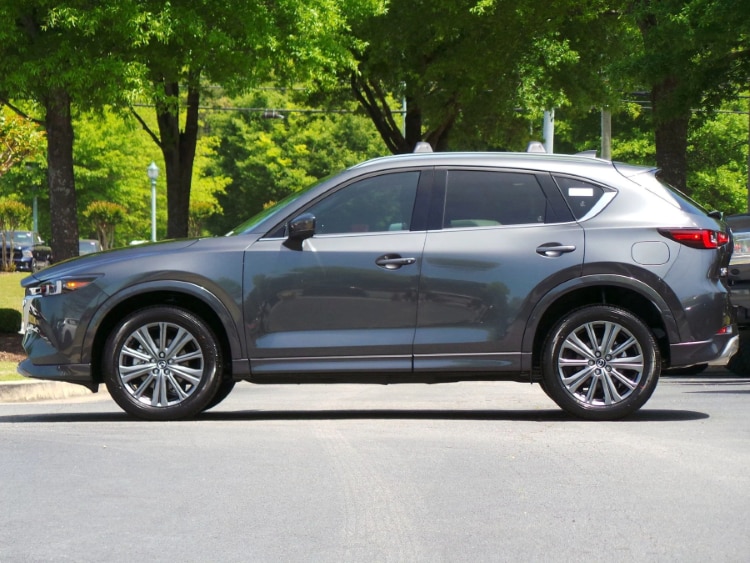 Mazda CX-5
Mazda CX-5Keep in mind that the size of an SUV impacts more than just space. It affects other factors like fuel efficiency and overall drivability. By determining the right size early in your search, you can better filter your options, saving you time and effort.
How Much Do I Need To Carry?
While closely related to overall size, this question deserves its own focus. Think about what you’ll be transporting and how much of it, whether it’s people, cargo, or equipment.
Assess how many passengers you typically have along for the ride. This will help you decide between two or three rows of seating. For example, if you’re the team mom hauling kids and their teammates to tournaments every weekend, a three-row full-size SUV like the Chevrolet Tahoe will accommodate everyone comfortably. If it’s usually just you and your immediate family, a compact two-row SUV like the Honda CR-V offers plenty of space without the extra bulk.
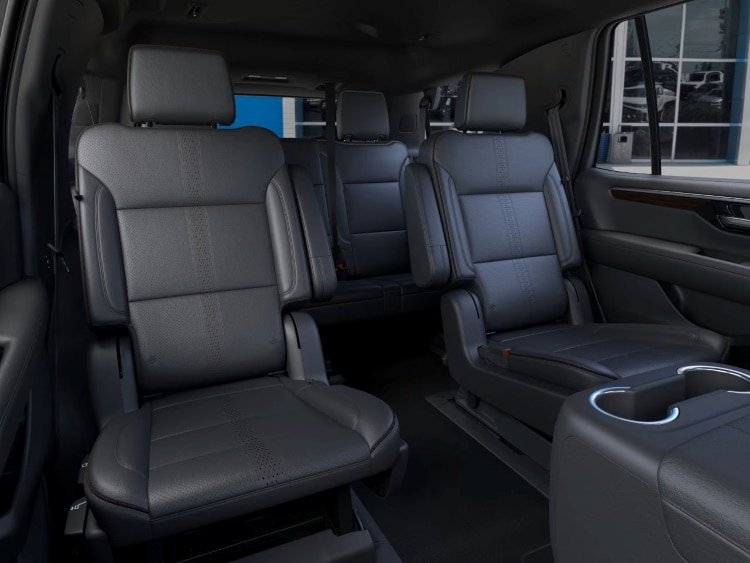 Chevrolet Tahoe Interior
Chevrolet Tahoe Interior
You’re not always carrying people. Sometimes, it’s all about the stuff. Whether it’s luggage, outdoor gear, or work supplies, your SUV must be able to accommodate your essential items. Leading the way in this department are the Chevrolet Suburban and GMC Yukon XL. With all seats folded down, these full-size SUVs offer over 144 cu-ft of cargo capacity, well ahead of the next closest option.
An SUV’s ability to haul goes beyond what fits inside. Even among similar-sized models, towing ability can vary depending on the engine type, drivetrain, and other factors. Think about what you might need to tow, and make sure you choose an SUV with the appropriate towing capacity and necessary equipment. In addition to the Suburban and Yukon, the Lexus GX 550 (9,000+ lbs) and Toyota Sequoia (9,500+ lbs) boast impressive towing capacities, especially for their size.
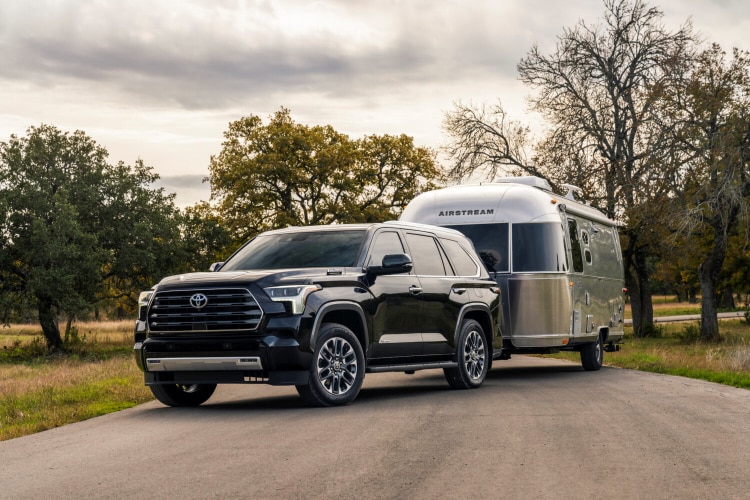 Toyota Sequoia
Toyota Sequoia
Where Will I Take My SUV?
Some SUVs embody comfort and luxury, while others possess the rugged capability that begs to go off-road. If you plan to venture beyond paved roads, prioritize SUVs with four-wheel or all-wheel drive. In fact, many SUVs come equipped with off-road-specific features like high ground clearance, specialized drive modes, and suspension systems built to handle tough terrain. The Toyota 4Runner, and of course, the Jeep Wrangler remain popular among off-road enthusiasts.
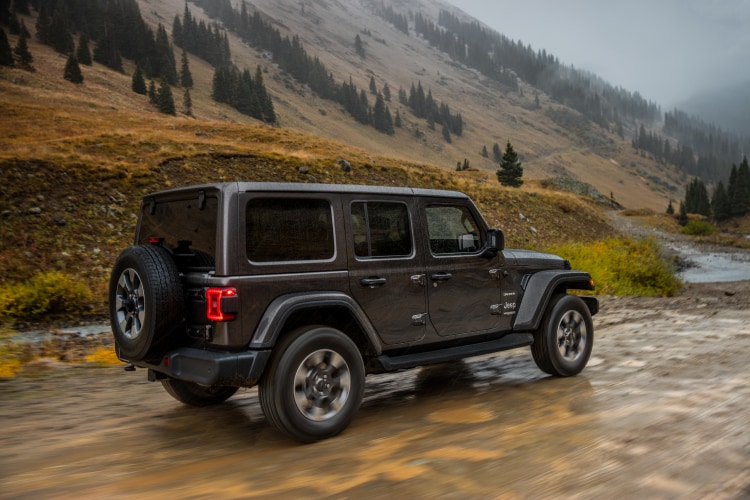 Jeep Wrangler
Jeep Wrangler
On the contrary, if you stick to city streets and highways, off-road features are less critical. There’s technically no harm in owning an off-road SUV, and it could even come in handy during harsh weather and tricky road conditions. Either way, having destinations in mind will help you choose the right SUV for whatever roads (or trails) lie ahead.
How Important is Fuel Efficiency?
Due to fluctuating fuel costs, fuel efficiency remains a major consideration for many car shoppers. No surprise there. While SUVs aren’t traditionally known for high mileage ratings, that’s quickly changing. Nowadays, many models offer impressive fuel economy without sacrificing space or performance.
Traditional gas-powered SUVs like the Volkswagen Taos and Chevrolet Trax deliver over 30 mpg. Additionally, many manufacturers offer hybrid versions of their most popular SUV models, allowing drivers to boost efficiency without changing their driving habits. For those ready to make the full-electric switch, EVs like the Honda Prologue, Cadillac Lyriq, and many others provide excellent range without using a single drop of fuel. Electric SUVs not only present an eco-friendly driving option but also result in noticeable savings over time.
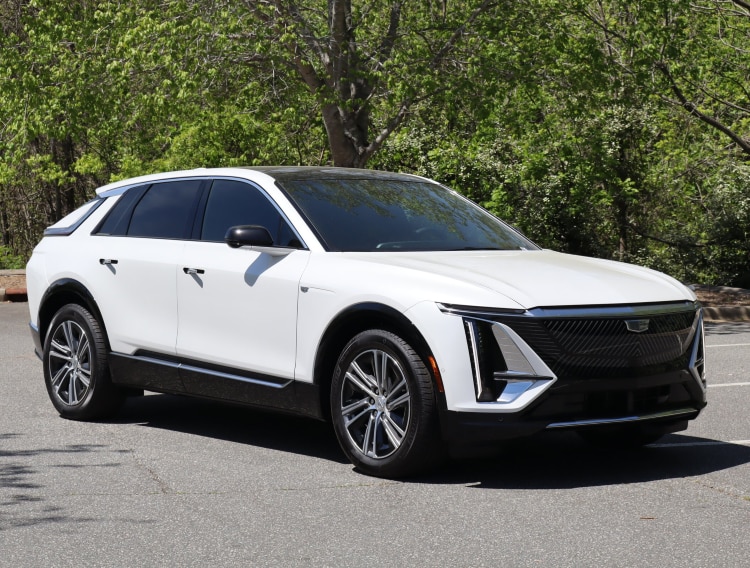 Cadillac Lyriq
Cadillac Lyriq
Start Your SUV Journey with Hendrick
No matter where you are in your SUV search, Hendrick Automotive Group is here to help every step of the way. With over 15,000 new and pre-owned SUVs available in our nationwide inventory, now is the time to find the SUV that fits your lifestyle, budget, and needs behind the wheel.
The Hendrick SUV Season Sales Event is happening NOW! Take advantage of $0 down payment options, payment deferral plans for up to 90 days, and available low interest rates. Browse our SUV inventory and connect with a dealer near you. Your SUV is waiting!
 AdChoices
AdChoices